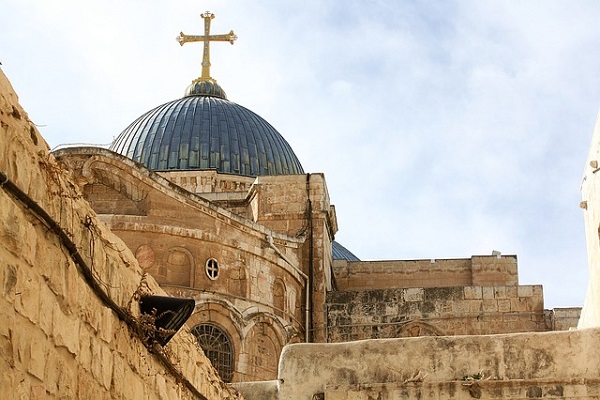
Jerusalem Holy Site Closed in Protest
- By Nathan Glover --
- 28 Feb 2018 --

Jerusalem municipality clarifies stand, saying that worship structures will not be taxed
Jerusalem's church leaders on February 25 bolted the doors of Church of the Holy Sepulchre[/tweetit] located in the city. The action was done as a mark of protest against the new tax policy initiated by the Israelis. The Christians were also against a land expropriation law which is supposed to be tabled in the Knesset. They termed the proposed law and the tax policies an attack on Christians resident in Holy Land. Leaders of all three major denominations in the city: Armenian, Roman Catholic, and Greek Orthodox, confirmed that the popular destination will remain inaccessible to both the faithful and the tourists in the unforeseeable future. The faithful believe that the Church of the Holy Sepulchre marks the spot of the crucifixion of Jesus Christ. He was also believed to have been buried there.
Jerusalem Holy Site Closed in Protest[/tweetthis]
The Christian leaders issued a joint statement where they cited a campaign of systematic abuse against them. The letter even compared the present-day scenario to what the Jews faced in Germany during the Nazi regime. Anger had been bubbling among the Christians from the time the Jerusalem municipal authority announced that tax would be imposed on a number of Christian assets located around the ancient city. The probable parliament bill also caused a lot of heartburn. The churches have a lot to lose as they hold large tranches of urban land within the city premises. They say the law violates a status quo which has been in place for a long time.
The protests had its intended results. A committee has been set up by the Israeli cabinet that will examine the bill which will permit the Israeli Government to expropriate all Jerusalem land sold by the churches. A majority of the buyers are private firms specializing in real estate.
The leaders of the Armenian Apostolic, Greek Orthodox, and Roman Catholic churches alleged that such moves are part of a conscious effort to slowly rid Jerusalem of Christians. The Old City part has the Church of the Holy Sepulchre. The Jerusalem municipality has strongly refuted such claims.
Nir Barkat, the Mayor of Jerusalem, replied through social media that it is not logical to expect that commercial properties owned by the church, including retail businesses and hotels, will enjoy tax-exempt statuses as they did before. He clarified that taxes would not be imposed on structures used for worship. The latter, as per existing laws, will continue to be shielded from property taxes.
The Church of the Holy Sepulchre in Jerusalem will be closed until further notice in protest of the city's tax policy and an Israeli bill that would allow the state to expropriate a church land#ApartheidIsrael pic.twitter.com/ICp1zjvX7h
— Ali Dahmash (@AliDahmash) February 26, 2018



















